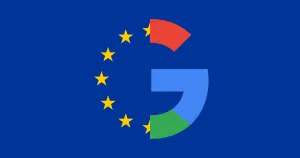Yesterday, the European Parliament expanded their regulation of the tech industry—an area the US seems unwilling to touch—by passing a bill dubbed the Digital Services Act, an accompaniment to the Digital Markets Act passed in mid-December. Odds are that something very much like them will be law by the end of the year and that these regulations will reshape online services around the world, as did the EU’s General Data Protection Legislation (the reason you keep getting asked to accept cookies on every big website).
The Digital Markets Act seems to be a step forward for democratic competition and accountability in the marketplace. In a press release, the EU Parliament says the bill will ban “certain practices used by large platforms acting as ‘gatekeepers,’...with a view to ensuring fair and open markets.” Limiting regulations to large platforms (those that service 45m people in the EU, basically) is a wise move to avoid overburdening small businesses with regulatory bloat and expenses.
What’s more, the bill’s general goal, to reduce anti-competitive behavior and promote market participation, is both noble and reasonable. Common sense restrictions on buyouts and provisions maintaining equality of opportunity have been implemented in the past for different industries. It shouldn’t be too complicated to adapt these ideas to ensure platforms like search engines are playing fair. Ensuring that markets remain competitive, innovative, and in service of consumers rather than a small cohort of wealthy executives is an ongoing challenge which requires constant adaptation. It’s also a key component of a healthy democracy and economy.
The Digital Services Act, on the other hand, seems almost completely wrong-headed. In a similar press release, Christel Schaldemose, who is leading the effort, described the bill as a set of rules “to make sure that what is illegal offline is illegal online.” Put that way, it’s hard to disagree.
The real trouble, however, stems from the bill’s quiet inclusion—again limited to very large platforms—“of both illegal and harmful content.” The bill neglects to define “harmful content,” likely because such a concept is almost impossible to define, let alone regulate. It’s probable, as suggested in the press release, that this definition will include “disinformation,” but that too is a bear of a concept.
Take, for example, the myriad instances of evolving scientific consensus during the pandemic. Whether it’s the efficacy of different kinds of masks or the “lab leak theory,” the reality of ‘scientific truth’ is that it changes. Should people who advocated for wearing masks in March of 2020 despite contrary public health guidance have had their posts removed?
The bill’s misleading presentation by its principal supporter, as merely being concerned with illegality, is worrisome enough. Time will tell, as the EU negotiates this policy, whether the Digital Services Act serves to enhance democracy by bolstering freedom, as the Digital Markets Act does, or damages it by subjugating freedom of expression to unelected bureaucrats.
Subscribe to Spectacles

Comments
Join the conversation